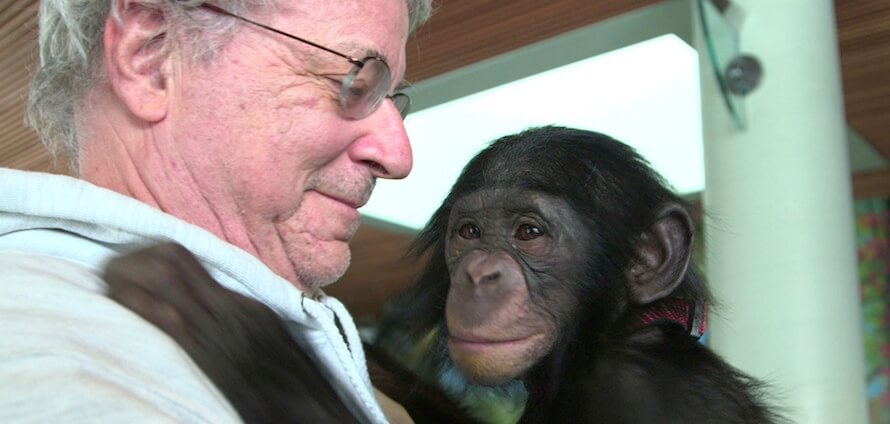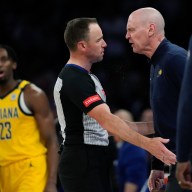‘Unlocking the Cage’ Is “Unlocking the Cage” really an activist documentary? Initially, it may seem so. The opening peers at gorillas lurking unhappily behind fences. All the while our main star, animal rights activist Steven Wise, rattles off factoids about our genetic relatives. “They not only have a mind,” he gravely explains, “but they know others have a mind.” The film trails Wise and the group he’s headed for decades, the Nonhuman Rights Project, as they campaign to extend legal personhood to chimps being, in one way or another, kept. What follows could have been a mere extension of their plight. After all, Wise commissioned the film himself. But again: Is this even activist filmmaking? It is and it isn’t. And if all it was was an issue doc it wouldn’t be wholly convincing. Some of Wise’s arguments cut blood; others are dodgy. At times he has more compassion than sense. He’s fighting to save mammals intelligent enough that captivity can drive them crazy. Some commit self-harm. That’s moving enough, but the law doesn’t change on emotion. Real change requires not only a noble cause but a savviness — a willingness to exploit loopholes, to prey on weaknesses, to manipulate people, to play if not dirty, exactly, then dirty-ish. RELATED: Interview: Ian McKellen on “The Dresser” and how acting isn’t that hard Wise is one of those people, and it’s this quality that gives “Unlocking the Cage” a reason to exist beyond its noble cause. Our star isn’t some birkenstocked tree-hugger peddling fuzzy catchphrases; he doubles as a lecturer at Harvard School of Law. He knows the system, and he knows that his every move must be precise. He’s an eternally smiling mensch, though even that seems hard-won: He must know people will tolerate him, even forgive certain weaknesses, if they like him. There’s another reason to read this as more than an issue doc. The directors are D.A. Pennebaker and Chris Hegedus, the former one of the great pioneers of non-fiction filmmaking. He’s the one behind “Don’t Look Now” and “Town Bloody Hall,” where the camera is, as they say, a fly on the wall, semi-invisible observer of life as it happens. That’s not the style he and his longtime partner/spouse Hegedus bring to “Cage.” In keeping with their more recent work, it’s more assembly line filmmaking: It’s short on long observational scenes and heavy on shots of people staring at computers and clips from the news, heated TV debates and Colbert appearances. It’s less about observation than cramming a lot of information into 90-some minutes. RELATED: New on Netflix: “Dope,” “The Keeping Room,” “To Catch a Thief” Look closer and you see that Pennebaker and Hegedus the information they highlight isn’t just about Wise’s plight. As his mission builds to a climactic showdown at the New York Supreme Court, we see him refine and tighten his arguments, chuck ones that aren’t working and demonstrate a heroic level of patience and goodwill. He starts off the film comparing chimps to slaves. Later a judge gently points out that such language can be off-putting. Wise never quite gets the wording, but you see him forced at every step to consider not just what he’s saying but the way he’s saying it, sometimes even gaming a system that’s often rigged against major change. When he points out that corporations have been granted personhood — or, in India, some rivers — Wise probably doesn’t really think that’s a good reason why chimpanzees should receive the same treatment. He’s just seizing upon that legal holy grail: precedent. You may not leave “Cage” convinced Wise is right, but you will leave thinking he knows how to get stuff done.
Directors: D.A. Pennebaker, Chris Hegedus
Genre: Documentary
Rating: NR
3 (out of 5) Globes
‘Unlocking the Cage’ is not just an activist doc about animal rights

First Run Features
Follow Matt Prigge on Twitter @mattprigge


















